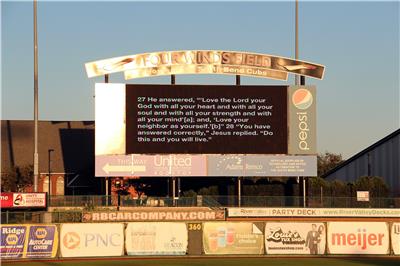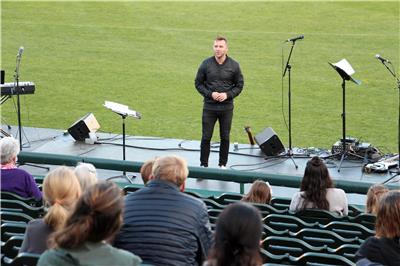Have you ever wondered what it would be like to have a father who is evil, who is notorious for his terrible deeds? You, as the child, would feel the humiliation of it. There would be a residual shame where you, as that man’s child, would be embarrassed to be related to him. You’d be tainted by his legacy. You might even consider changing your name so people would stop asking, “You’re not related to that guy, are you?”
On the other hand, have you ever wondered what it would be like to have a father who is great, who is known for doing very good things? As his child, you would wear his name with pride. As a family member, you’d feel the thrill of being related to him. There would be a residual glory that would extend for many generations. You’d feel good when someone asked, “Oh, are you related to that guy?”
Both the shame and the pride are very natural and understandable. Wise old Solomon, who had quite the father himself, tells us that “the glory of children is their fathers” (Proverbs 17:6). As we read those words, we should picture children looking at their parents with pride because of their accomplishments. (Though it specifically mentions fathers, it’s certainly not stretching the proverb beyond its meaning to extend it to mothers as well.) Children are basking in the residual glory of their parents’ greatness. They are proud to be sons and daughters of these people.
It’s important to acknowledge that because these words come from the book of Proverbs, we can have confidence that we know what these parents have done and what they have achieved. We can also have confidence that we know what their children value. Here wise and godly children are looking at their wise and godly parents with joy, pride, and gratitude because of their wisdom, because of their godliness. They are honoring their parents for the wisdom they’ve shared and the righteous example they’ve displayed. They are saying, “Thank God for my wise and godly mom and father!”
But the primary call here isn’t for children to honor their parents, though that’s certainly in view. It’s first a challenge for parents to be worthy of honor, for parents to be the glory of their children. It’s a challenge to parents to live a life that is worthy of that kind of praise and recognition from their children.
Of course, we are soli deo gloria Christians. We live ultimately for the glory of God alone. But that does not mean it’s wrong to desire the affirmation or the commendation of other human beings, and especially those who know us best, who see us as we really are. It only becomes sinful if we want their praise for things that are sinful or meaningless, or if we want their praise so much that we will do anything to get it. It only becomes evil when it becomes an idol that controls us. Otherwise, it’s perfectly good and motivating when we want it for the best of reasons. While our ultimate desire is to hear God say, “Well done, good and faithful servant,” we all also want to hear our children say, “Well done, good and faithful father” or “Well done, good and faithful mom.”
This little proverb puts the call on us to live the kind of lives that make our godly children proud to be associated with us. It puts the call on us to live such lives of wisdom and righteousness that our children are proud to be related to us, proud to wear our names. Our accomplishments in godly living will make them proud, and they’ll give thanks and praise to God.
Whether you’re a teen or you’re far older, take it from me that it means a lot when you praise your parents. It blesses them when you commend them for what they’ve done well and when you forgive them for what they’ve done poorly. No matter your age, your Christian parents want to hear how they’ve exemplified distinctly Christian character and helped you live a godly life. That’s the kind of thing you’ll probably tell everyone else at your parents’ funeral, but maybe it would be nice to tell them now while they can still hear it!
And if you are a parent, commit to living with godly character so you make it easy for them. Live out the wisdom of Proverbs. Live out the calling and character of a Christian. Live a life that reflects the Bible and is worthy of imitation. In that way you’ll be the glory of your children, they’ll be able to speak your name with joy and pride and gratitude. Ultimately, they’ll praise God for your godly life and legacy.
This article originally appeared here.


















